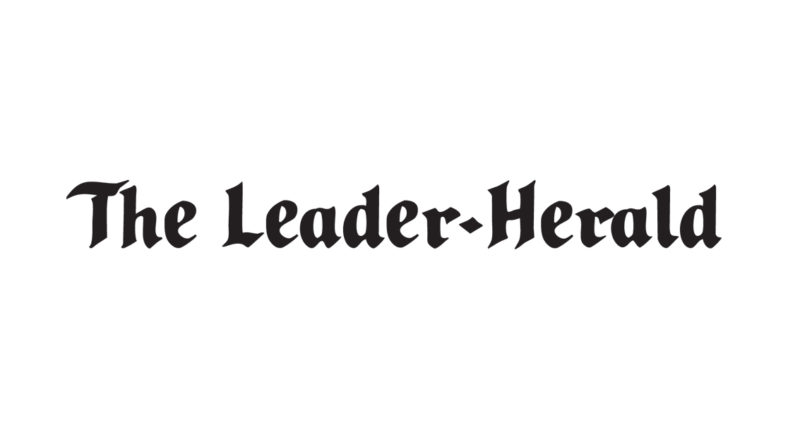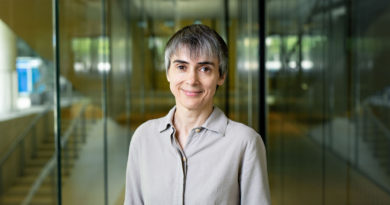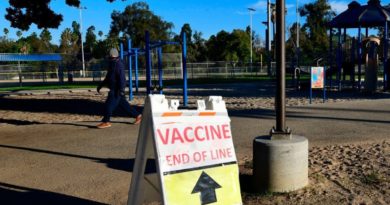FM to implement COVID-19 testing | News, Sports, Jobs
JOHNSTOWN — Fulton-Montgomery Community College is developing plans to launch coronavirus surveillance testing on campus following the Friday announcement from State University of New York Chancellor Jim Malatras that all SUNY schools will implement on campus testing programs.
The announcement by Malatras will require all colleges and universities in the SUNY system to implement regular surveillance testing programs to detect coronavirus cases on campuses. The move is intended to help identify, trace and contain the virus quickly if positive cases are identified among students or staff.
Campuses are expected to utilize rapid screening diagnostic tests developed by SUNY Upstate University that were approved by the state Department of Health. The tests use saliva samples collected by the subject and handed off to staff for shipment to SUNY Upstate’s Neuroscience Research Building where more than 15,000 samples can be analyzed daily.
To speed the process further, SUNY received approval from the state to perform pooled surveillance testing that combines samples from 10 to 25 individuals for a single analysis. If the pool sample tests negative for the coronavirus, all individuals whose samples were included in the pool do not have the coronavirus.
If the pool sample tests positive for the coronavirus, remaining portions of the already collected samples are individually tested to identify the infected individual or individuals. Malatras has touted the rapid detection test developed by SUNY Upstate and its ability to be used for pool testing as providing SUNY schools a reliable and cost-effective method of testing students and staff on a regular basis as schools work to safely reopen campuses.
“By launching immediate surveillance testing on every campus, we are giving ourselves the best shot to identify the presence of this virus before it can spread further across a campus, possibly infecting hundreds of students, and forcing us to roll back the in-person offerings so many of our students find critical,” said Malatras in a prepared statement. “By installing regular surveillance testing of our on-campus population, we will be able to much better identify non-symptomatic carriers who otherwise may not have known to get tested.”
FMCC Acting President Greg Truckenmiller on Tuesday confirmed that college officials are developing plans to launch surveillance testing on campus after receiving initial details on program requirements on Friday with additional guidance to be issued to the school this week. Plans for how the college will implement testing must be submitted to SUNY on Thursday.
Truckenmiller did not have a start date for the surveillance testing on campus but said SUNY officials are looking for colleges to launch surveillance programs “sooner rather than later.” Also to be determined is the frequency and level of testing, with Malatras reportedly recognizing the varying degrees of testing needed between community colleges where students are primarily commuters and four-year institutions that primarily boast residential students.
“He wants to provide some flexibility but wants to ensure community colleges including us do surveillance in some form,” said Truckenmiller.
Although classes resumed at FMCC for the fall semester on Sept. 2, density on campus has been greatly reduced under the college’s reopening plan that calls for roughly 70 percent of classes to be taught remotely. Only classes that include hands-on learning or lab components are scheduled to be taught on campus in-person.
Truckenmiller estimated that just under 700 students are taking classes that will bring them to campus at some point throughout the week, but he noted that staggered class schedules for on-site classes that are conducted Monday through Thursday mean that only somewhere around 200 students will be on campus throughout the course of each day. He added that roughly 90 faculty and staff members will be physically on campus at various times throughout the course of the week under the reopening plan that calls for most staff members who do not need to be on campus to work remotely.
FMCC will likely utilize SUNY Empire’s testing program and will receive advice from program administrators to determine how many students and staff members should be tested in each surveillance sampling to gather a representative sample based on current campus density, according to Truckenmiller. Students who do not attend classes on campus will not be tested.
Truckenmiller pointed to SUNY Empire’s diagnostic test as affordable while noting that the cost of rolling out testing is a concern as SUNY officials to date have not allocated funding to schools to cover the cost of the required testing.
“The current indication that we have is that this is going to be an expense that we need to come up with a way to pay for,” said Truckenmiller. “That is obviously a concern that we have, and other institutions have, it is basically an unfunded mandate. It is a concern, but it is a requirement and we will certainly comply.”
But he noted that the testing period for FMCC for the fall will be limited, running only until Thanksgiving break as the college’s schedule calls for all classes to revert to a remote only format for the remainder of the semester after the November holiday.
As on campus testing rolls out at SUNY schools in the coming days, FMCC along with all colleges in the state would be required to revert to a remote only format for a period of at least two weeks if colleges have 100 positive cases or if the number of coronavirus cases equal 5 percent or more of their population under guidance issued by Gov. Andrew Cuomo in August. After the two-week remote learning period, colleges would reassess whether to reopen for in-person learning with local health departments and, in the event an outbreak was not contained, would consider additional measures in consultation with the state Department of Health.
Cuomo issued that guidance after reports began to emerge of students attending large gatherings at reopening schools in the state and based on the experiences observed in other states where clusters began to develop following the return to in-person learning.
Since he was appointed as the new SUNY chancellor effective Aug. 31, Malatras has been busy responding to outbreaks at recently reopened SUNY campuses and instances of large gatherings of students on and off SUNY campuses. A coronavirus outbreak of more than 600 infected students at SUNY Oneonta has already led that campus to close and shift to remote learning only for the remainder of the fall semester. A number of students at several SUNY campuses have faced suspension for failure to comply with protocols to reduce the possible spread of the virus since returning to campus for the fall semester.
If FMCC students participated in similar activities off campus that were non-compliant with current state restrictions, Truckenmiller acknowledged that SUNY officials could become involved and the college could take disciplinary action depending on the situation.
“We are obviously discouraging that type of behavior. It wouldn’t necessarily be different from a normal year where a large-scale party happened off campus and we have worked with law enforcement if students were involved,” said Truckenmiller.
Issues are unlikely to crop up on campus this semester as FMCC made the determination in late August not to open residence halls due to low enrollment, with roughly 30 students registered to live on campus when the decision was made. Truckenmiller noted that students were steadily cancelling residential registrations over the course of the summer as it became clear that most classes and activities would be conducted remotely.
“We were getting cancellations on almost a daily basis,” said Truckenmiller pointing to the likelihood that many of the remaining registered students would have similarly cancelled on-campus housing plans.
Following the decision not to open residence halls college officials worked with impacted students to amend their college schedules to ensure they could complete coursework remotely. The college is expected to determine in November the feasibility of opening the residence halls for the spring semester.
For now Truckenmiller is focused on the fall semester where on-campus classes were taking place for the third day on Tuesday under new protocols launched by the college to prevent possible transmission of the coronavirus with the goal of keeping students and staff safely on campus for the months ahead.
“It’s been a smooth start, people are wearing their masks, people are following social distancing,” said Truckenmiller. “I think our protocols are good, our compliance is good, I think we’re going to be in good shape, particularly when you look at the surrounding community, our infection rate is low, there are not a lot of outbreaks in the surrounding area and the majority of our students are local.”




